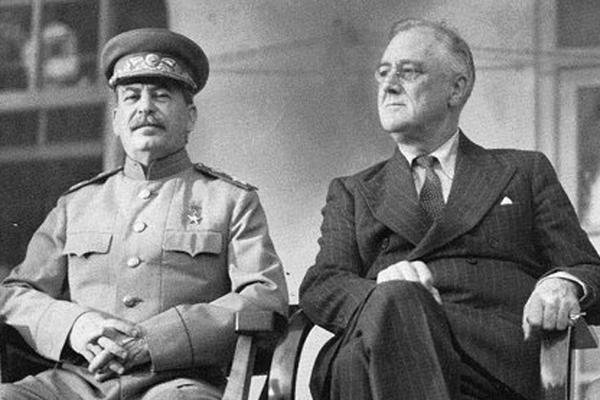Prof. Kathryn Weathersby

After the London Conference of Allied Foreign Ministers failed even to discuss the Korean issue, the Soviets took steps to make sure that its zone on the peninsula would serve as a reliable buffer against a future attack on the Soviet Union. Stalin assigned this important task to one of his personal representatives, Colonel-General Terentii F. Shtykov, an experienced and trusted political officer would be Stalin’s point person in Korea for the next five years. Shtykov moved quickly. By early October he had gathered a group of army officers with civilian expertise to set up a Soviet Civil Administration (SCA).
We can see from the structure of the SCA that it was meant to be an effective and comprehensive government. It was composed of departments of communications, finance, transport, agriculture, industry, education and culture, justice, health, and the press. Shtykov chose as head of the SCA an organization specialist from the Maritime Army Group with long experience in the Far East, Major-General Andrei A. Romanenko. To carry out the critically important role of supervising Korean political leaders, Shtykov appointed Colonel Aleksandr M. Ignatiev, another experienced political officer. He also created positions of Provincial Adviser to manage affairs at the provincial level, staffed with Red Army colonels.
While it had high-level Soviet officers in the top posts, the plan was for the Soviet SCA officials to rule behind the scenes. The public face of the occupation was to be Korean. This was difficult to accomplish, however, because few communist party members in Korea were known and trusted by the Soviets. In the 1920s the Korean party had been one of the largest in Asia, as many Koreans were attracted to Moscow’s support for national liberation movements. However, it quickly became known for factionalism and ineffectiveness – particularly an inability to outmaneuver the Japanese police. Consequently, in 1932 the Communist International (Comintern), the governing body for the international communist movement, disbanded the Korean party and ordered its members to join the Chinese Communist Party. Moreover, in 1937 Stalin deported to Central Asia the entire Korean population living in the Soviet Far East, out of fear they would either provoke a Japanese attack or spy for Tokyo. He then issued a decree mandating harsh punishment for any Korean who entered Soviet territory illegally.
The only Korean communists known to Soviet officials were a small group of partisans who, though they had fought with the Chinese communists in Manchuria, had taken refuge in Siberia in 1941 to escape the Japanese police. The Soviets had inducted them into the Red Army and sent them to a training camp outside Khabarovsk, near the Korean border, where they trained them to gather intelligence on Japanese forces. Some forty of this group were brought to Korea in mid-September, led by a young captain named Kim Il Sung.
The Soviets also brought to their zone a small number of reliable Koreans from Central Asia to provide translation and administrative skills. The most important member of this group was Major Mikhail Kang, who, besides serving as chief interpreter for the SCA, was responsible for supervising the local communists and the prominent nationalist Cho Man-sik. In December 1945 an additional eighty-two Soviet-Koreans arrived to take key posts in the SCA and in the newly reorganized communist party.
The government of the Soviet Union was organized on the principle of “dual power,” parallel structures of government and communist party, with the latter monitoring the former. This system was, naturally, put in place in all the areas the Red Army occupied after World War II, including northern Korea. In the next post we will examine how Shtykov created a separate party organization for the Soviet zone, a more sensitive and difficult matter than establishing the Soviet Civil Administration.
really great post of war..korean war really was a heart touching war ..great memoreble war
Korean, can't just believe it... We never pray there should be any war again, because the Asian countries are really up for the game anytime. Now I see the positive effect of technology...
I like your article
your work is so good.keep it up....
Your artical is informative.keep it up for better to better in day by day.
While I am reading post, I study English :) Thank you!